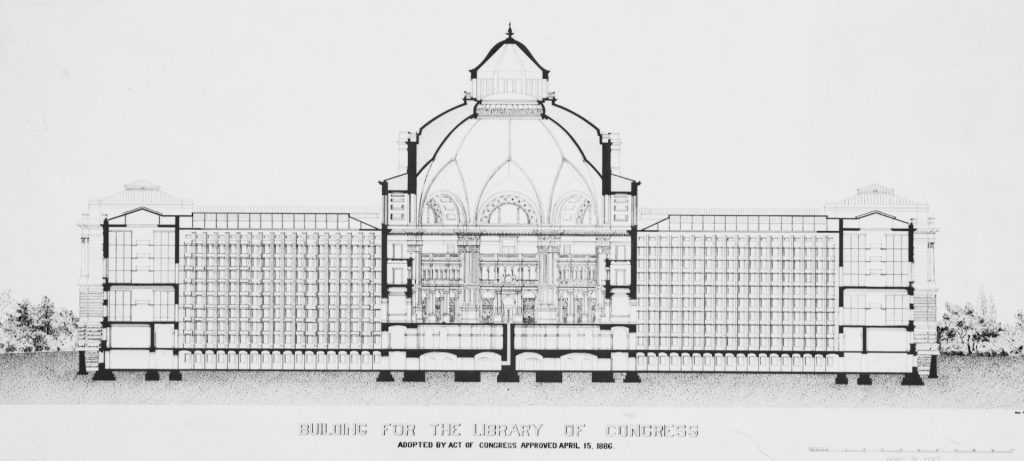
A blueprint for the original design of the Library of Congress. The Library is now developing a blueprint for a copyright tribunal with an automatic opt-in.
On November 30, the IPAT Clinic filed a comment with the United States Copyright Office on behalf of the Organization for Transformative Works asking the Office to revise the way it’s setting up the upcoming Copyright Claims Board. The CCB is supposed to be like small claims court for copyright, but the way it is set up is very problematic.
As we discuss in the comment, for starters, the Copyright Claims Board is almost certainly unconstitutional—it gives a judicial role to employees of Congress with no right of appeal, and no jury trial. And it’s not optional—if someone does not affirmatively opt out (for example, fails to respond to a notice that a claim has been lodged against them in the CCB), they have waived these key rights.
The Copyright Office’s proposed rule will make the CCB’s constitutional problems worse. The proposed rule will allow very vague notices and claims that could easily allow bad actors to mislead or strongarm OTW members (and many others) into participating. Our comment for OTW shows how the proposed rule will allow misconduct, and establish an uneven playing field that puts thousands of OTW members, average fans, internet users, website operators, consumers, and others at a severe disadvantage.
Our comment suggests a range of specific changes that will make things less unfair and discourage trolling, harassment, and misinformation. As we note in our introduction:
The proposed rule runs counter to the language of the CASE Act and Congressional intent in several respects, and devises a process that could allow unscrupulous claimants to exploit inequities and require respondents to make an irreversible decision about their constitutional rights without adequate information. These deficiencies exacerbate the constitutional concerns surrounding this new form of adjudication.
We urge the Copyright Office to revise the proposed rule to:
-
- Strengthen procedures to deter fraud and abuse by unscrupulous claimants;
- Improve the information provided in notices and the information required to be included in a claim; and
- Revise the Copyright Claims Attorney “claim review” procedure to prohibit ex parte communications and to construe claims fairly.
You can download the OTW comments here: regulations.gov/comment/COLC-2